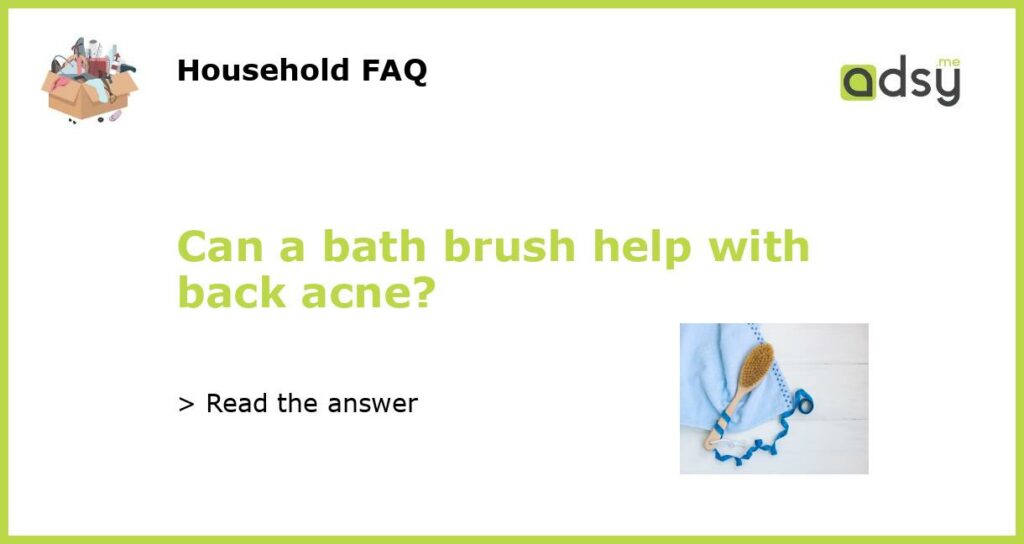Understanding Back Acne and Its Causes
Back acne, also known as bacne, is a common skin condition that affects people of all ages. The back has many sebaceous glands that produce oil and sweat, making it more prone to acne. Clogged pores, dead skin cells, and bacteria are the primary causes of back acne, which can lead to pimples, blackheads, and cysts. Other contributing factors include hormonal changes, genetics, and certain medications.
Bath Brushes – An Effective Tool for Treating Back Acne
If you’re struggling with back acne and have tried several creams and medications without much success, you may want to consider using a bath brush. A bath brush is a long-handled brush with soft bristles that you can use to scrub or exfoliate your back while bathing. It helps remove dead skin cells, unclog pores, and stimulate blood circulation, leading to smoother and healthier-looking skin.
How to Use a Bath Brush for Back Acne
Using a bath brush to treat back acne is simple and straightforward. First, wet your back with warm water, apply your favorite body wash, soap, or acne treatment product. Next, take the bath brush and gently scrub your back in a circular motion, focusing on the affected areas. Don’t be too harsh or aggressive, as this can irritate your skin and make your acne worse. Rinse your back with warm water and pat dry with a clean towel.
Other Tips for Dealing with Back Acne
In addition to using a bath brush, there are other things you can do to prevent and manage back acne. Some of these tips include:
- Wearing loose-fitting clothes made of breathable fabrics
- Avoiding tight-fitting backpacks or sports equipment
- Showering immediately after sweaty activities
- Using non-comedogenic skincare products
- Eating a healthy and balanced diet
- Managing stress levels
When to See a Dermatologist
Although back acne can be treated with home remedies and over-the-counter products, there are instances when you should see a dermatologist. If your acne is severe, painful, or causing scarring, you may need prescription-strength medication, such as antibiotics, retinoids, or corticosteroids. Your dermatologist can also recommend other treatments like chemical peels, laser therapy, or photodynamic therapy to improve your skin’s appearance.






